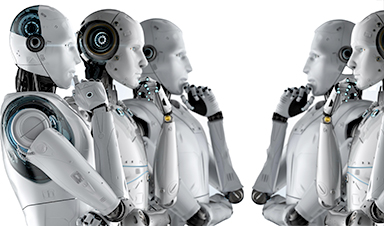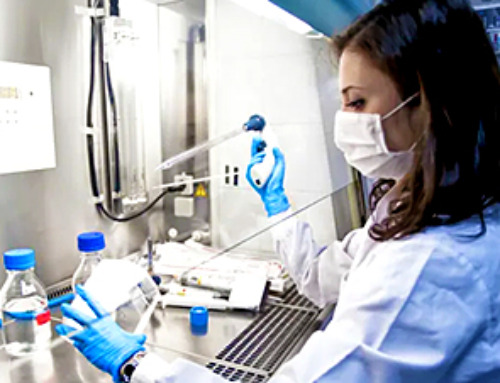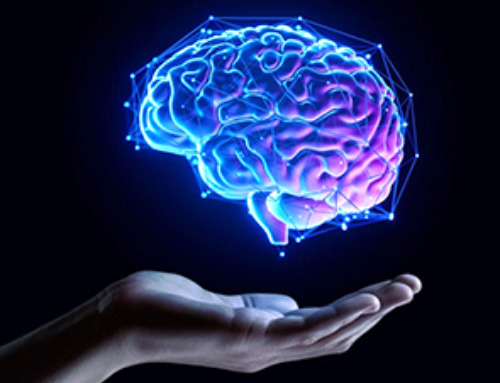Modern AI systems have fulfilled Turing's vision of machines that learn and converse like humans, but challenges remain. A new paper highlights concerns about energy consumption and societal inequality while calling for more robust AI testing to ensure ethical and sustainable progress.
A perspective published on November 13 in Intelligent Computing, a Science Partner Journal, argues that modern artificial intelligence systems have fulfilled Alan Turing's decades-old vision: machines capable of learning from experience and engaging in human-like conversations. Authored by Bernardo Gonçalves, a researcher affiliated with the University of São Paulo and the University of Cambridge, the paper examines the alignment between contemporary AI technologies and Turing's ideas, while highlighting key differences.
The paper emphasizes how today's transformer-based systems—despite their significant energy demands—contrast with Turing's concept of machines developing intelligence naturally, akin to the learning process of human children. Gonçalves notes that transformers, which power current generative AI models, provide what Turing described as "adequate proof" of machine intelligence. Leveraging attention mechanisms and large-scale learning, these systems now excel in tasks traditionally associated with human cognition, such as generating coherent text, solving complex problems, and engaging in discussions about abstract concepts.
The Evolution of AI and Turing's Influence
"Without resorting to preprogramming or special tricks, their intelligence grows as they learn from experience, and to ordinary people, they can appear human-like in conversation," writes Gonçalves. "This means that they can pass the Turing test and that we are now living in one of many possible Turing futures where machines can pass for what they are not."

This achievement traces back to Turing's 1950 concept of the "imitation game," in which a machine would attempt to mimic a human in a remote conversation, deceiving a non-expert judge. The test became a cornerstone of artificial intelligence research, with early AI pioneers John McCarthy and Claude Shannon considering it the "Turing definition of thinking" and Turing's "strong criterion." Popular culture, too, undeniably reflects Turing's influence: the HAL-9000 computer in the Stanley Kubrick film 2001: A Space Odyssey famously passed the Turing test with ease.
However, the paper underscores that Turing's ultimate goal was not simply to create machines that could trick humans into thinking they were intelligent. Instead, he envisioned "child machines" modeled on the natural development of the human brain—systems that would grow and learn over time, ultimately becoming powerful enough to have a meaningful impact on society and the natural world.
Challenges in Modern AI Development
The paper highlights concerns about current AI development. While Turing advocated for energy-efficient systems inspired by the natural development of the human brain, today's AI systems consume massive amounts of computing power, raising sustainability concerns. Additionally, the paper draws attention to Turing's ahead-of-his-time societal warnings. He cautioned that automation should affect all levels of society equally, not just displace lower-wage workers while benefiting only a small group of technology owners—an issue that resonates strongly with current debates about AI's impact on employment and social inequality.
Looking ahead, the paper calls for Turing-like AI testing that would introduce machine adversaries and statistical protocols to address emerging challenges such as data contamination and poisoning. These more rigorous evaluation methods will ensure AI systems are tested in ways that reflect real-world complexities, aligning with Turing's vision of sustainable and ethically guided machine intelligence.
Reference: "Passed the Turing Test: Living in Turing Futures" by Bernardo Gonçalves, 13 November 2024, Intelligent Computing.
DOI: 10.34133/icomputing.0102
News
Urgent warning over deadly ‘brain swelling’ virus amid fears it could spread globally
Airports across Asia have been put on high alert after India confirmed two cases of the deadly Nipah virus in the state of West Bengal over the past month. Thailand, Nepal and Vietnam are among the [...]
This Vaccine Stops Bird Flu Before It Reaches the Lungs
A new nasal spray vaccine could stop bird flu at the door — blocking infection, reducing spread, and helping head off the next pandemic. Since first appearing in the United States in 2014, H5N1 [...]
These two viruses may become the next public health threats, scientists say
Two emerging pathogens with animal origins—influenza D virus and canine coronavirus—have so far been quietly flying under the radar, but researchers warn conditions are ripe for the viruses to spread more widely among humans. [...]
COVID-19 viral fragments shown to target and kill specific immune cells
COVID-19 viral fragments shown to target and kill specific immune cells in UCLA-led study Clues about extreme cases and omicron’s effects come from a cross-disciplinary international research team New research shows that after the [...]
Smaller Than a Grain of Salt: Engineers Create the World’s Tiniest Wireless Brain Implant
A salt-grain-sized neural implant can record and transmit brain activity wirelessly for extended periods. Researchers at Cornell University, working with collaborators, have created an extremely small neural implant that can sit on a grain of [...]
Scientists Develop a New Way To See Inside the Human Body Using 3D Color Imaging
A newly developed imaging method blends ultrasound and photoacoustics to capture both tissue structure and blood-vessel function in 3D. By blending two powerful imaging methods, researchers from Caltech and USC have developed a new way to [...]
Brain waves could help paralyzed patients move again
People with spinal cord injuries often lose the ability to move their arms or legs. In many cases, the nerves in the limbs remain healthy, and the brain continues to function normally. The loss of [...]
Scientists Discover a New “Cleanup Hub” Inside the Human Brain
A newly identified lymphatic drainage pathway along the middle meningeal artery reveals how the human brain clears waste. How does the brain clear away waste? This task is handled by the brain’s lymphatic drainage [...]
New Drug Slashes Dangerous Blood Fats by Nearly 40% in First Human Trial
Scientists have found a way to fine-tune a central fat-control pathway in the liver, reducing harmful blood triglycerides while preserving beneficial cholesterol functions. When we eat, the body turns surplus calories into molecules called [...]
A Simple Brain Scan May Help Restore Movement After Paralysis
A brain cap and smart algorithms may one day help paralyzed patients turn thought into movement—no surgery required. People with spinal cord injuries often experience partial or complete loss of movement in their arms [...]
Plant Discovery Could Transform How Medicines Are Made
Scientists have uncovered an unexpected way plants make powerful chemicals, revealing hidden biological connections that could transform how medicines are discovered and produced. Plants produce protective chemicals called alkaloids as part of their natural [...]
Scientists Develop IV Therapy That Repairs the Brain After Stroke
New nanomaterial passes the blood-brain barrier to reduce damaging inflammation after the most common form of stroke. When someone experiences a stroke, doctors must quickly restore blood flow to the brain to prevent death. [...]
Analyzing Darwin’s specimens without opening 200-year-old jars
Scientists have successfully analyzed Charles Darwin's original specimens from his HMS Beagle voyage (1831 to 1836) to the Galapagos Islands. Remarkably, the specimens have been analyzed without opening their 200-year-old preservation jars. Examining 46 [...]
Scientists discover natural ‘brake’ that could stop harmful inflammation
Researchers at University College London (UCL) have uncovered a key mechanism that helps the body switch off inflammation—a breakthrough that could lead to new treatments for chronic diseases affecting millions worldwide. Inflammation is the [...]
A Forgotten Molecule Could Revive Failing Antifungal Drugs and Save Millions of Lives
Scientists have uncovered a way to make existing antifungal drugs work again against deadly, drug-resistant fungi. Fungal infections claim millions of lives worldwide each year, and current medical treatments are failing to keep pace. [...]
Scientists Trap Thyme’s Healing Power in Tiny Capsules
A new micro-encapsulation breakthrough could turn thyme’s powerful health benefits into safer, smarter nanodoses. Thyme extract is often praised for its wide range of health benefits, giving it a reputation as a natural medicinal [...]





















